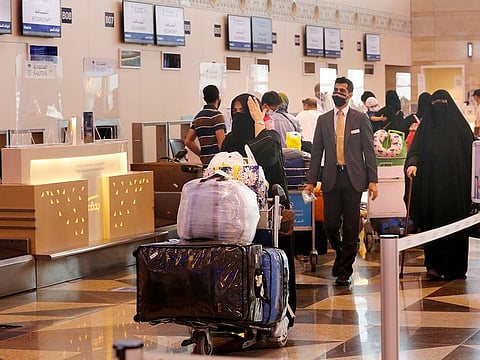Saudi Arabia: SR200,000 to 1 million fines for brokers involved in bogus recruitment
Suggestions to cut penalties against recruitment of workers who have no real jobs rejected

Cairo: Saudi labour authorities have turned down suggestions to reduce penalties against the recruitment of foreign workers who have no real jobs in a step aimed to combat illegal work brokerage.
Earlier this year, the Saudi Ministry of Human Resources unveiled a draft scheme incriminating illegal labour practices.
The draft proposes fines ranging from SR200,000 up to SR1 million for an employer involved in recruiting a worker or more from abroad without having actual jobs for them.
According to the draft, if the offender is a foreigner, he/she will be deported from the kingdom.
In their feedback to a related survey launched by the ministry, some commentators voiced opposition to the fines calling them “huge”.
In response, the ministry said in setting the fines, the enormity of the violation and its consequences were considered, the Saudi news portal Akhbar24 reported.
The ministry added that the proposed penalties will remain unchanged.
Moreover, the ministry has rejected a proposal that the first-time violator gets a warning and argued that the warning would not be an enough deterrence.
However, the ministry has adopted a proposal that the fines multiply based on the number of the workers linked to the violation with an SR10 million cap for the fine.
In recent years, Saudi Arabia, home to a large community of expat workers, has sought to regulate its job market, and boost its attractiveness and competitiveness.
In 2020, Saudi Arabia introduced major labour reforms, drastically improving its sponsorship system. The reforms, which went into effect the following year, allow job mobility and regulate the exit and re-entry visa issuance for expatriate workers without employers’ approval.
Sign up for the Daily Briefing
Get the latest news and updates straight to your inbox



